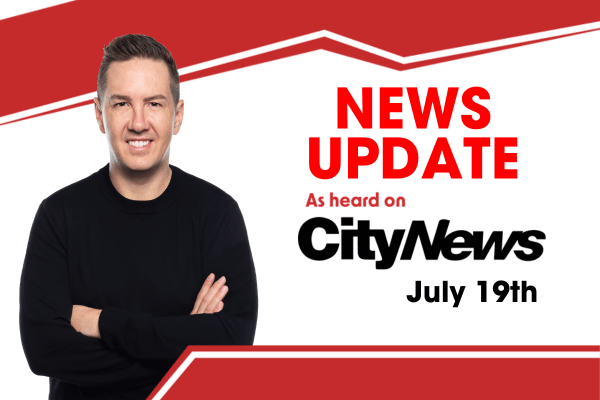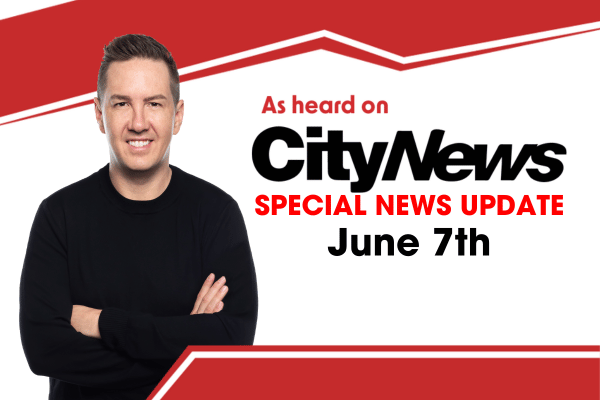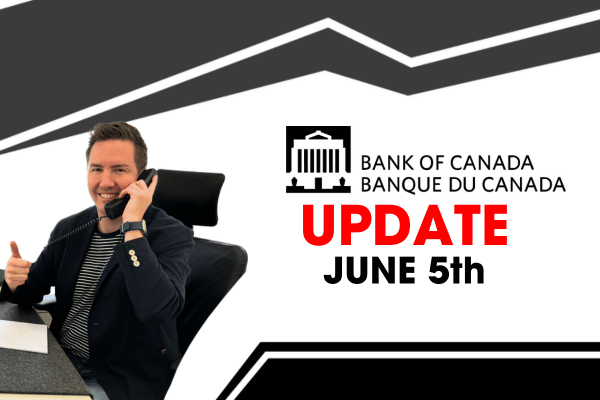Clinton joins Todd Veinotte for this special news update on a Toronto news announcement about a potential big drop in prices in the coming months. Clinton gives his take on what that means for Nova Scotians, and gives refinance advice.
Global News: Home buyers 101: Getting your pre-approval
Global News: Home buyers 101: Getting your pre-approval
Alyse is planning on buying her first home. She stops in to visit Clinton Wilkins Mortgage Team to talk about getting your pre-approval!
Don’t feel like watching the video? Check out the credit advice video transcript below. Global News: Homebuyers 101: Getting Your Pre-Approval
Transcript:
Buying your first home
Alyse: [00:00:00] So I am in the process of buying my very first home. It is a really exciting time for me, but also a little bit nerve-wracking. I have a ton of questions and I figure if I have a lot of questions, then other people probably have a lot of questions as well. So I’m putting together a four-part series on first time home buying and my first step is getting pre-approved for a mortgage, which I have a lot of questions about.
So, I’m here at Centum Home Lenders Ltd. I’m going to head in and visit with Clinton Wilkins, he’s the senior mortgage adviser here, and ask some questions about mortgage pre-approval.
Alyse: [00:00:33] Well, this has been a long time coming for me, as you know, Clinton.
Clinton: [00:00:35] I know.
Alyse: [00:00:36] I’m about to buy a house. It’ll hopefully happen within the next few months. But first, I want to talk about the advantages or just why you would choose a mortgage broker as opposed to somebody with the bank.
Advantages of a mortgage broker
Clinton: [00:00:48] One great, you know, the reason why mortgage brokers really go above and beyond is they work for the consumer, not for the lender. And we also have access to about 40 different lenders. You know, when you go into your bank branch, they only have access to their products, which sometimes can be limiting because everybody’s situation is different.
Alyse: [00:01:05] You know, we were talking earlier about how back in the 60s it was I think the statistic was huge, 80 per cent or so went with went to the bank to get a mortgage. You’re saying these days it’s completely flipped, right?
Clinton: [00:01:17] Even when I started 14 years ago, about 60 per cent of mortgages were being originated in the branch and only about 40 per cent in the broker channel.
Alyse: [00:01:24] What’s the change? What happened?
Clinton: [00:01:26] I think just consumers are becoming more educated. Mortgage brokers are specializing in one product and they’re not trying to cross-sell you into other products like banking or insurance.
Alyse: [00:01:35] Ok. So I’ve decided to go with a mortgage broker, mortgage specialist like yourself. My next step would be obviously to come to see you for a pre-approval. So I need some documentation. Right?
It starts with documentation
Clinton: [00:01:44] So during the pre-approval, we’re going to look at three things. We’re going to look at your income. We’re going to look at your assets and we’re going to look at your credit. And that’s really going to determine, you know, what type of interest rate you’re going to get and how much you’re in need to do as a down payment. And, you know, everybody situation’s a little bit different.
So, when we send out that original request for documents, it’s like pick your own adventure. You know, self-employment is certainly on the rise. Many Canadians are becoming self-employed and they need a little bit of different documentation. But there’s a solution for everyone. Every Canadian can get a mortgage, but depending on their income, their assets and their credit, it can really determine how much they need to do as a down payment and what type of rate they’re going to get.
Alyse: [00:02:19] True or false? If I have quite a bit of debt, is it best to hold off on seeing somebody like you or should I should I come in as soon as I’m thinking about buying a house and see you even if I have some debt?
Getting your pre-approval
Clinton: [00:02:29] I think if you’re thinking about buying a home, getting a pre-approval is a great place to start. You know, we can start with a roadmap and we can figure out, do you need to pay off some of that debt prior or can you carry that debt into buying your first home?
Alyse: [00:02:41] So it’s difficult for me to figure out, I think on my own how much I can afford for a home. I need someone like you. So how will you help me determine how much I can afford on a home?
Clinton: [00:02:51] Well, there’s a finite number of what you can afford. And typically that’s where we start in terms of doing a pre-approval. And you may not want to, you know, buy to the maximum amount of your affordability because who wants to sit in a home that they can’t furnish and they’re going to be eating Kraft dinner? I think looking at what you’re paying now is important.
And, you know, figure out how much you really want a budget because your max affordability and your budget sometimes are two different things. And I don’t sit in your household. I don’t know, you know, what your expenses are outside of your credit debt and your new home. So that’s something that you really have to soul search and look in the mirror. But I think during that pre-approval process, it’s a great time to look at that.
What about my down payment?
Alyse: [00:03:26] All right. Obviously, you’ve got to think about a down payment, too, before you actually go ahead and start paying off your mortgage. So what is a minimum down payment that I should be paying ahead of getting a mortgage?
Clinton: [00:03:37] So the minimum down payment is five per cent. And that can come either from saved resources. It could come from a gift or it could be borrowed. Obviously borrowing the down payment is not quite as favourable. You may pay a higher premium to the Canadian Mortgage and Housing Corporation, and if you borrow your down payment, you can’t take advantage of the first time home buyer incentives.
Alyse: [00:03:56] Tell me more about that.
Clinton: [00:03:58] Yeah, so that just launched late last year. The federal government announced it in the budget and they started taking applications in September for properties that started closing in November onward. Now that we’re in February going into March, the first time home buyer incentive certainly is picking up a lot of steam. It really works well in Atlantic Canada and in the prairies because most of our homes are under five hundred thousand. So with the way that it works as a household can qualify for the first time home buyers incentive. If you’re a first-time home buyer, and the household income doesn’t exceed one hundred twenty thousand.
Alyse: [00:04:31] And of course, there are some incentives for first time home buyers. When you’re thinking about getting a mortgage. So tell me a little bit more about the down payment assistance program and the first time home buyers incentive.
Clinton: [00:04:41] So the first time home buyer incentive, the government would kick in an additional five per cent to the down payment. You put in five, the government would put in five for a resale home. But if it’s a new construction property, the government would kick in 10 per cent. So they would make the total down payment 15. But now Nova Scotia and other provinces, they have down payment assistance programs. Which is technically a borrow down payment, but it’s an interest free loan. So in Nova Scotia, maximum household income can be 75-thousand and the maximum amount of assistance that you can get would be 14-thousand. So that means the maximum purchase price would be 280.
Alyse: [00:05:15] So in a perfect world, I have been pre-approved. Everything is looking in order here. So what is my next step with you after getting that pre-approval?
Clinton: [00:05:22] Your next step once you have the pre-approval in place. Typically, it’s good for 120 days. So don’t change your employment. Don’t change your credit and don’t change your assets. If anything, just save more. The next step is going and finding your licensed real estate professional, your realtor, and start looking at a home.
Alyse: [00:05:37] Thanks so much, Clinton. And next week, Clinton, I are going to be talking about finding a realtor. And so excited for this. We’re going to look for some homes. So don’t miss out.
Looking for more information about improving your financial fitness, or other mortgage application advice? Feel free to contact us!


